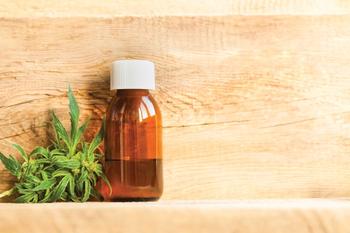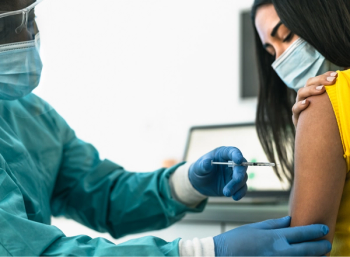
The pill, Paxlovid, showed an 88% decrease in hospitalization and death for those taking it 5 days after experiencing COVID-19 symptoms.

The pill, Paxlovid, showed an 88% decrease in hospitalization and death for those taking it 5 days after experiencing COVID-19 symptoms.

Learn how the challenges and opportunities of the last year have impacted independent pharmacy professionals around the world.

Take a look back at the top podcasts published on Drug Topics® this year.

Take a look back at the top 10 COVID-19 news articles published on Drug Topics® this year.

Take a look back at the top 10 women’s health news articles published on Drug Topics® this year.

Take a look back at the top 10 pain management news articles published on Drug Topics® this year.

Take a look back at the top 10 expert interviews published on Drug Topics® this year.

Take a look back at the top 10 CBD news articles published on Drug Topics® this year.

Take a look back at the top 10 technology news articles published on Drug Topics® this year.

Take a look back at the top 10 legal news articles published on Drug Topics® this year.

Four winners of the SingleCare Best of the Best Pharmacy Awards joined Drug Topics® to share their knowledge with fellow pharmacists and pharmacy technicians.

Did you miss our coverage of the 2021 SingleCare Best of the Best Pharmacy Awards? View all four interviews in our video gallery below.

Here’s a roundup of the latest news from Drug Topics®.

Take a look back at the top 15 articles published on Drug Topics® this year.

Here’s a preview of the featured content to watch for this week on Drug Topics®.

Here’s a roundup of the latest news from Drug Topics®.

Here’s a roundup of the latest news from Drug Topics®.

Less than a quarter of physicians could accurately estimate out-of-pocket drug costs.

Here’s a roundup of the latest news from Drug Topics®.

Continued vigilance is needed in the health care field to only prescribe antibiotics when they are truly needed.

Here’s a preview of the featured content to watch for this week on Drug Topics®.

Here’s a roundup of the latest news from Drug Topics®.

Michael E. Chernew, PhD, co-editor-in-chief of The American Journal of Managed Care®, discussed cost and sustainability issues specific to commercial insurance, Medicare, and Medicaid at the National Alliance 2021 Annual Forum held in a hybrid format in Washington, DC.

Experts discuss the impact of misinformation in medicine at the recent American College of Asthma, Allergy & Immunology annual scientific meeting.

Here’s a roundup of the latest news from Drug Topics®.

Here’s a preview of the featured content to watch for this week on Drug Topics®.

Here’s a roundup of the latest news coverage from Drug Topics®.

In honor of American Pharmacists Month, here are 4 pharmacists making a significant difference in the communities they serve.

Here’s a preview of the featured content to watch for this week on Drug Topics®.

The FDA and CDC have both issued their respective recommendations for the rollout of Pfizer-BioNTech and Moderna COVID-19 vaccine boosters.